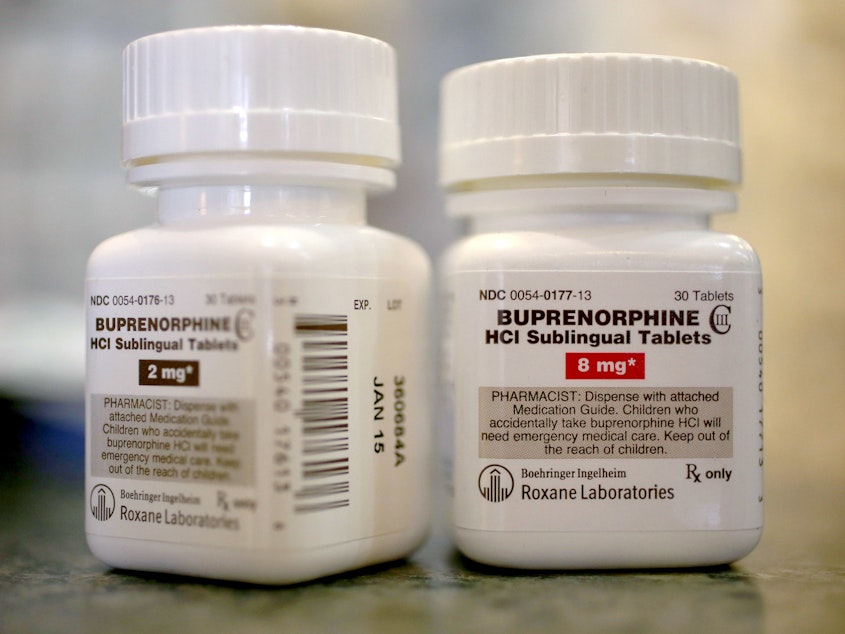Trump Administration Will Let More Doctors Prescribe Drug To Fight Opioid Addiction

The Trump administration introduced new addiction treatment guidelines Thursday that give physicians more flexibility to prescribe a drug to patients struggling with opioid addiction.
The Department of Health and Human Services is eliminating the requirement that physicians obtain a special federal waiver in order to prescribe buprenorphine, a medication to treat opioid use disorder. Previously, doctors had to take an eight-hour course to receive the license, called the "X-waiver."
The obstacle discouraged doctors from pursing buprenorphine as an addiction treatment for patients, despite evidence it was highly effective in preventing a relapse, advocates for the change have long said.
"The medical evidence is clear: access to medication-assisted treatment, including buprenorphine that can be prescribed in office-based settings, is the gold standard for treating individuals suffering from opioid use disorder," said Adm. Brett P. Giroir, assistant secretary for HHS, said in a statement. "Removing some of the certification requirements for an X-waiver for physicians is a step toward providing more people struggling with this chronic disease access to medication assisted treatment."
The administration's move comes at a time when the U.S. is again facing record levels of drug overdose deaths, according to the Centers for Disease Control and Prevention.
Sponsored
More than 83,000 people died of drug overdoses in the U.S. in the 12 months ending in June 2020, the CDC said. It's the highest number ever recorded in a one-year period, and a more than 21% increase compared to the previous year. While the category include all drug overdose deaths, the CDC says the increase is largely driven by synthetic opioids.
The American College of Emergency Physicians, the national medical society representing emergency medicine, applauded HHS's new guidance.
"As emergency physicians, we see every day the devastating effects that the opioid crisis has had on the communities we serve—a crisis that has unfortunately only worsened during the COVID-19 pandemic," Mark Rosenberg, president of ACEP, said in a statement Thursday. "Buprenorphine is the most important medication in our arsenal for treating opioid use disorder, which is currently one of the most lethal diseases for Americans."
The American Medical Association also praised the move, saying it will allow earlier intervention by doctors treating patients suffering addiction.
"With this change, office-based physicians and physician-led teams working with patients to manage their other medical conditions can also treat them for their opioid use disorder," Dr. Patrice Harris, who heads the AMA's opioid task force, said in a statement.
Sponsored
Harris also said allowing doctors to treat opioid addiction as they treat other medical conditions, without additional regulatory hurdles, will reduce the stigma that has often shaped the healthcare response to substance use disorders.
Under these new guidelines, doctors who possess a Drug Enforcement Administration registration will still be limited to treating no more than 30 in-state patients with buprenorphine for addiction treatment at any one time. Nurse practitioners or physician assistants will still need to apply for separate waivers to prescribe buprenorphine.
The guidelines are not considered a new law or federal regulation, making it very easy for the President-elect Joe Biden administration to walk back this policy if so desired.
Giroir told Stat News that he thinks that scenario is unlikely, saying, "I doubt it seriously." [Copyright 2021 NPR]

